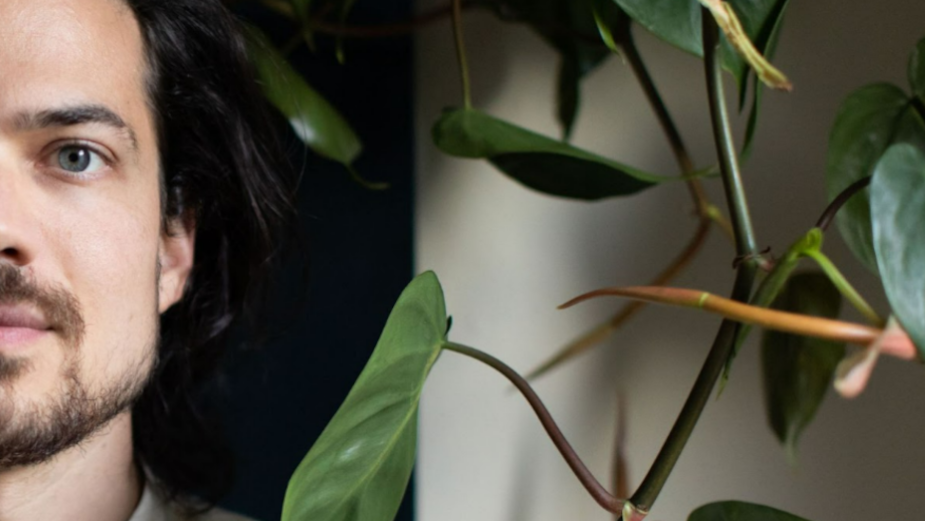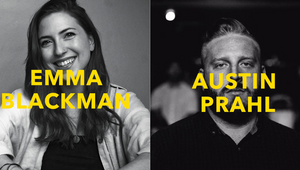
Sonic Boom: Why Calvin Pia Is Reclaiming the Lost Art of Listening

Photo credit: Olivia Ashton
Calvin Pia is an Emmy-nominated sound designer, mixer, composer, voiceover artist and sound healer.
When it comes to trends in professional sound design, I’m seeing a big push towards immersive audio, particularly spatial mixing. From Apple’s embrace of Dolby Atmos technology in their AirPod Pro and streaming service, to Facebook (now Meta)’s full-speed-ahead paving of the Metaverse in VR and AR, the industry is clearly doubling-down on a future where our real and virtual lives become increasingly more enmeshed. Like it or not, this puts spatial mixing at the centre of the conversation, as it is critical in creating convincingly immersive environments across all types of media and experiences. From one perspective, this is very exciting as it signifies a shift in the public consciousness towards valuing audio and it’s crucial role in storytelling, and thus gives us audio professionals a vast horizon of new opportunities, mediums and skills to set our sights/ears on (this article surveys the landscape well). But in the face of a culture hellbent on blazing the cutting-edge trails of technological innovation, I can’t help but feel an urge to toot a cautionary horn.
Don’t get me wrong - as a sound designer, composer and mixer, I am legitimately excited about many of these innovations. Spatialised mixing opens up an astounding array of sonic possibilities - allowing us to hear music in entirely new ways, to be at the center of a film, or to experience immersive audio/visuals in-person. And in the realm of VR/AR, we’ve seen some very promising potential use cases - particularly in the realms of PTSD therapy, and transporting people to places they could never go otherwise. As audio engineers, we are at the helm of elevating these experiences for people, and that’s a beautiful opportunity. But in an age obsessed with progress defined by the next human-made innovation - I’d like to propose an alternative path forward - one that celebrates innovation yet equally leads us into deeper intimacy with the natural world that is already here. I’d like to suggest we practice stillness, and reclaim the lost art of listening.
I bring a portable Zoom H5N recorder wherever I go - capturing ambiances, soundscapes, song seedlings and miscellaneous moments whenever inspiration strikes. In addition to amassing a bespoke library of sound effects to use in any project I choose, field recording has become a spiritual practice for me - a meditation in grounding into whatever environment I find myself in. Hitting the record button gives my body and mind permission to be still, listen deeply, and truly arrive. I find that it’s these moments that I’m the most open and receptive to the present moment, when time expands and life becomes infinitely rich. I’m always surprised at how even the most mundane moments - rain pattering on my window sill, birds playing in the bamboo shoots behind my house, my windchime slow dancing in the wind - anything manages to become enrapturing when given my full and undivided attention. It’s in times like these where I understand the joy that comes from being truly present - a state of being that, despite it being a watered-down colloquialism in today’s context, remains the crux of a life well-lived. As Gordon Hempton says, “silence is not the absence of something, but the presence of everything”. Nature’s songs are infinite and always unique - it’s up to us to choose to listen.
I realise how decidedly unsexy all of this 'sitting still and listening' stuff sounds in the face of exciting technological innovation. But maybe that’s what actually makes it sexy - or at least interesting, perhaps even radical. I take us on this scenic route to contrast what I see as a real imbalance in the age of the internet and the attention economy, while hopefully conveying the opportunity that exists when we choose the path less travelled. Jenny Odell writes, “in a world where our value is determined by our productivity, many of us find our every last minute captured, optimised, or appropriated as a financial resource by the technologies we use daily.” With social media and other digital platforms serving us an infinite feed of content meticulously curated to keep us hooked, our attention has become the commodity. But when we consider that our attention literally IS our whole existence, this business model becomes problematic. And though we all know this on some level, our difficulty to disengage is further proof that it’s methods are very effective. Now I’m not here to say that social media is universally bad - after all, I believe there are healthy ways to engage with it if we set out to do so. But from a bird’s-eye view, I see social media, VR and likely the Metaverse as one continuous line of innovation that, as entertaining as it may be, does more to distract us than enrich us. “Digital distractions are so seductive because they seem to offer the chance of escape to a realm where painful human limitations don’t apply” writes Oliver Burkeman in his book Four Thousand Weeks: Time Management for Mortals. “You need never feel bored or constrained in your freedom of action, which isn’t the case when it comes to work that matters.” His argument is that our impulse to pick up our devices comes from an avoidance of feeling the discomfort of what’s present. So his suggestion is to practice actually stepping into the moment you’re in, with all of its feelings, and whole-heartedly participate in the messiness of human existence. As we begin to intentionally remove the pacifier effect of social media and other distractions, we are left with experiences that mean more to us, precisely because we chose to feel them.
All of this is to say, when it comes to engaging with innovations in sound or otherwise, I choose to adopt a 'yes, and' approach. That is, remaining curious and vigilant when it comes to the innovations of tomorrow, AND remembering to inhabit and advocate for the world we have today. In the words of Jenny Odell, “To stand apart is to take the view of the outsider without leaving, always oriented toward what it is you would have left. It means not fleeing your enemy, but knowing your enemy, which turns out not to be the world - contemptus mundi - but the channels through which you encounter it day to day. It also means giving yourself the critical break that media cycles and narratives will not, allowing yourself to believe in another world while living in this one.” In our modern era of persistent progress, listening has become a lost art. But if we continue to cultivate it, we can be better equipped for any sonic medium, and perhaps even lead to a more fulfilling life in the process.













